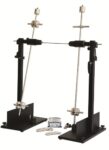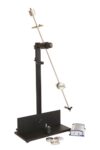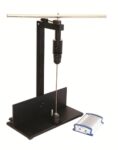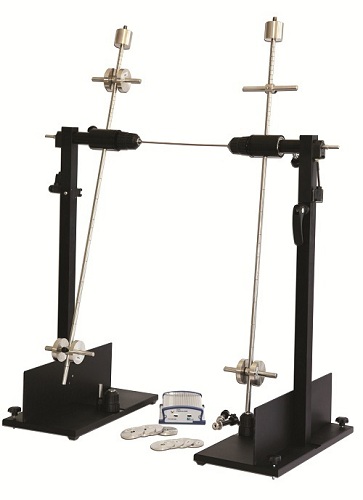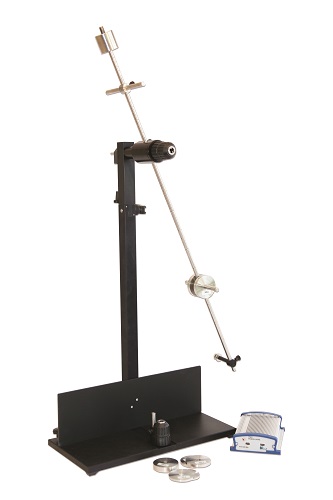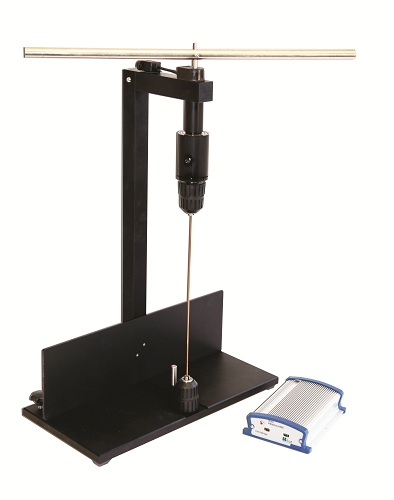Pendulum study: EXP100040
This comprehensive mechanical pack is designed to study a pendulum weight, a spring pendulum or pendulum pairs.
This comprehensive mechanical pack is designed to study a pendulum weight, a spring pendulum or pendulum pairs. It consists of two pendulum weights (that can be tilted to 90° to become a spring pendulum), a set of weights, twisted wires, and solids at different moments of inertia. Each pendulum is equipped with a contactless sensor for fluid and friction-free motion. This is accompanied by an acquisition system and a dedicated software allowing operation of data such as the pendulum period or its oscillation amplitude.
DAMPING BY FLUID FRICTION STUDY
When a magnet is inserted at the end of the pendulum, the eddy currents generated by displacement of the magnet in front of the aluminium plate result in damping by viscous friction. The magnet may be placed at varying distances from the plate to simulate a varying degree of damping. The software is used to measure the period T (cursors on the x-axis) and the successive amplitudes (cursors on the y-axis) of the pendulum. It can be seen that amplitudes decrease according to a geometric progression and that fluid braking does not markedly affect the pendulum period.
DETERMINING METAL ROD TORSION CONSTANT
A solid of a simple geometric shape (disk, bar), whose moment of inertia is easy to calculate compared to an
axis, is fixed to the end of the vertical torsion wire. The solid is oscillated, and its period T read via the software
provided. Using this period and the moment of inertia of the solid, the torsion constant of the metal rod can be calculated. You will be provided with several rods (different diameters).
CHECKING BEATINGS PERIOD
The two pendulums are connected by a torsion rod, and the same mass m is applied on them. While one pendulum is released in its balance position, the second is separated from its balance position and released. The software retrieves the time elapsing between two successive stops of this second pendulum. It represents the beating period that can be compared to the theoretical value.
SUBJECTS APPROACHED
»»Pendulum study
»»Fluid and solid damping study
»»Verification of Huygens theorem
»»Measuring metal rod torsion constant
»»Measuring body moment of inertia
»»Sympathetic pendulum study
»»Resonance study
NECESSARY EQUIPMENT
| Reference | Description | quantity |
| PHD006580 | Pendulum, with acquisition system | 2 |
| PHD006851 | Coupling parts | 1 |
| PHD006582 | Set of solids | 1 |
Computer is required
- Non catégorisé
- Electrical Engineering
- PHYSICS
- Energy & Systems
- Catalogues
- PDF catalogues

